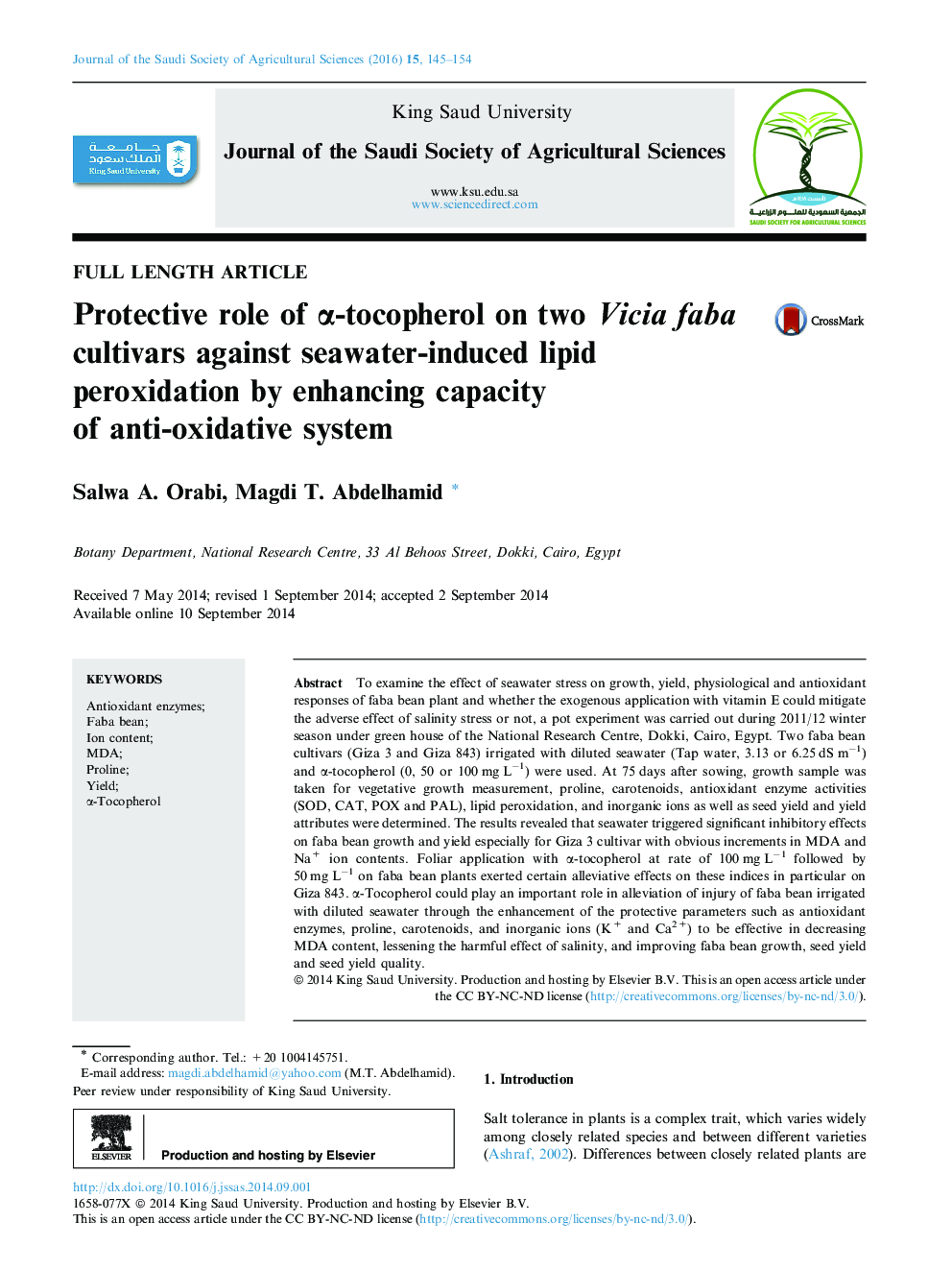| Article ID | Journal | Published Year | Pages | File Type |
|---|---|---|---|---|
| 4495596 | Journal of the Saudi Society of Agricultural Sciences | 2016 | 10 Pages |
To examine the effect of seawater stress on growth, yield, physiological and antioxidant responses of faba bean plant and whether the exogenous application with vitamin E could mitigate the adverse effect of salinity stress or not, a pot experiment was carried out during 2011/12 winter season under green house of the National Research Centre, Dokki, Cairo, Egypt. Two faba bean cultivars (Giza 3 and Giza 843) irrigated with diluted seawater (Tap water, 3.13 or 6.25 dS m−1) and α-tocopherol (0, 50 or 100 mg L−1) were used. At 75 days after sowing, growth sample was taken for vegetative growth measurement, proline, carotenoids, antioxidant enzyme activities (SOD, CAT, POX and PAL), lipid peroxidation, and inorganic ions as well as seed yield and yield attributes were determined. The results revealed that seawater triggered significant inhibitory effects on faba bean growth and yield especially for Giza 3 cultivar with obvious increments in MDA and Na+ ion contents. Foliar application with α-tocopherol at rate of 100 mg L−1 followed by 50 mg L−1 on faba bean plants exerted certain alleviative effects on these indices in particular on Giza 843. α-Tocopherol could play an important role in alleviation of injury of faba bean irrigated with diluted seawater through the enhancement of the protective parameters such as antioxidant enzymes, proline, carotenoids, and inorganic ions (K+ and Ca2+) to be effective in decreasing MDA content, lessening the harmful effect of salinity, and improving faba bean growth, seed yield and seed yield quality.
